More Women to Inspire
The difficulty in compiling an anthology such as this is selecting those speeches to include and – necessarily – those to be left out. History is packed full of examples of inspiring women speaking up for the causes they believe in, from empresses and queens defending their right to rule in a patriarchal society to pioneering scientists and inventors working on the fringes of the establishment. And continuing right up to the present day are brave new voices – such as eighteen-year-old Emma González, the American activist who spoke passionately about the need for gun control in the wake of the February 2018 Stoneman Douglas High School shooting in Florida – who strikingly illustrate how impactful our voices can be.
The majority of speeches in this collection are post-1830s. This decade was the point at which the fight for women’s rights in the Western world ushered women on to the public stage – a sphere in which previously they had been largely absent. Further back, a key difficulty for the researcher of women’s speeches is the scarcity of accurate recordings of such events. There are many women – philosophers, leaders, writers, activists – who we know spoke in public, yet their exact words have been lost to the passage of time. While this precluded their inclusion in this collection, these women are a powerful example of the strong lineage of eloquent women who we can look back on to inspire us today.
The speeches in So Here I Am are intended to inspire and empower, and it is my hope that they will leave you wanting much more. Look up some of the women below: read their stories, listen to their speeches on YouTube, follow them on Twitter, and be energized by these impassioned orators.
Sappho, Greek Poet, c. 610–c. 570 BC
Greek poet Sappho was famous for her lyric poetry, most of which survives only in fragments. Much of her life is a mystery, but her prolific writing, which celebrated the lives, thoughts and passions of women, was greatly admired in antiquity, as she is to this day. The modern use of the term ‘lesbian’ to refer to erotic love between women is an allusion to Sappho (who lived on the Greek island Lesbos), as it is commonly thought (though still debated) by modern scholars that her poetry was homoerotic.
Hortensia, Roman Heroine, 1st century BC
Best known for her oration, delivered in the Roman Forum, opposing plans to tax the property of 1,400 wealthy women. The tax was to raise money for the war against murdered dictator Julius Caesar’s assassins; Hortensia argued against such a levy on those who had no part in instigating or sustaining the conflict.
Boudicca, Queen of the Iceni, fl. AD 60
Following the annexation of the Iceni kingdom on the death of her husband, this ancient queen of a British tribe raised a rebellion against Roman rule, razing modern-day Colchester, St Albans and London to the ground.
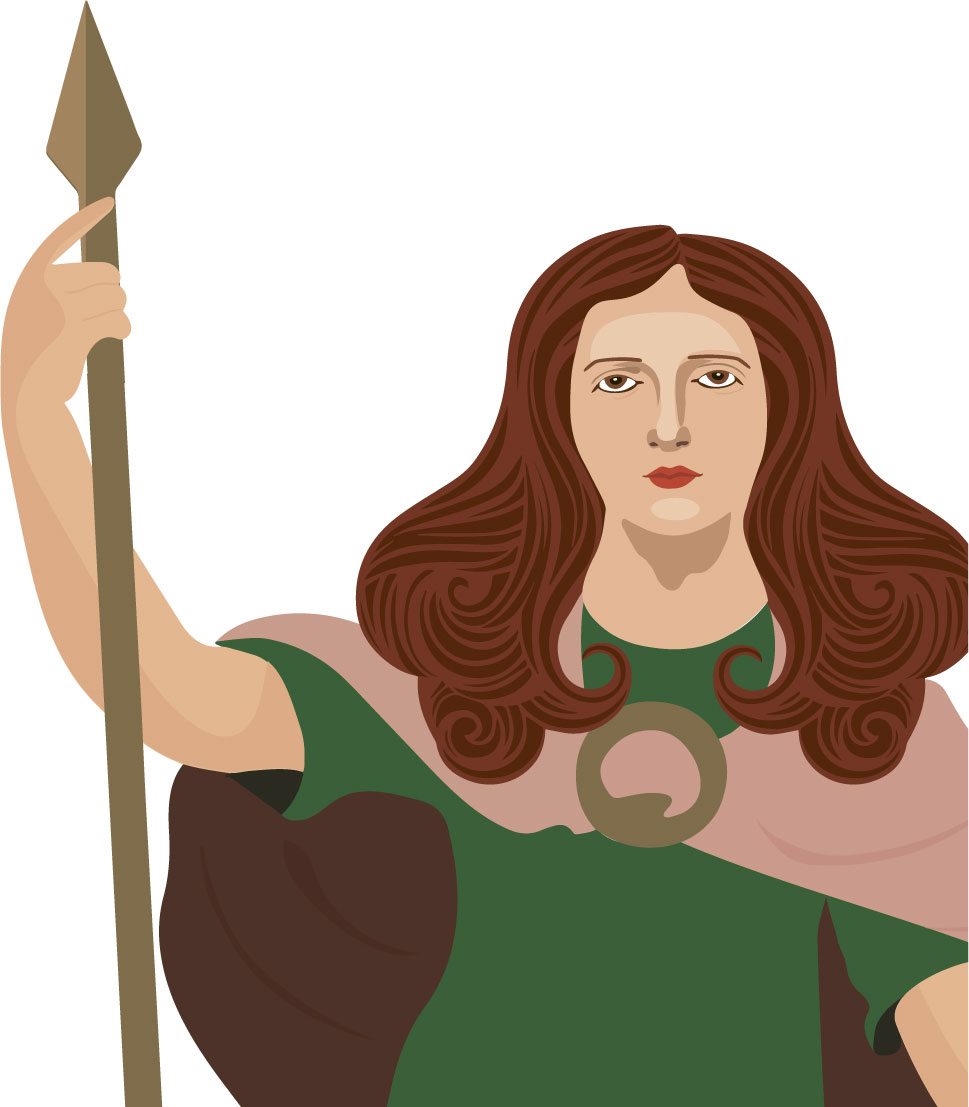
Boudicca
Hypatia, Mathematician and Astronomer, c. 355–415
A leading mathematician, astronomer and philosopher, Hypatia lived at a particularly turbulent time in Alexandria’s history. She is recorded as having been a popular teacher, attracting large audiences to hear her lectures on philosophy.
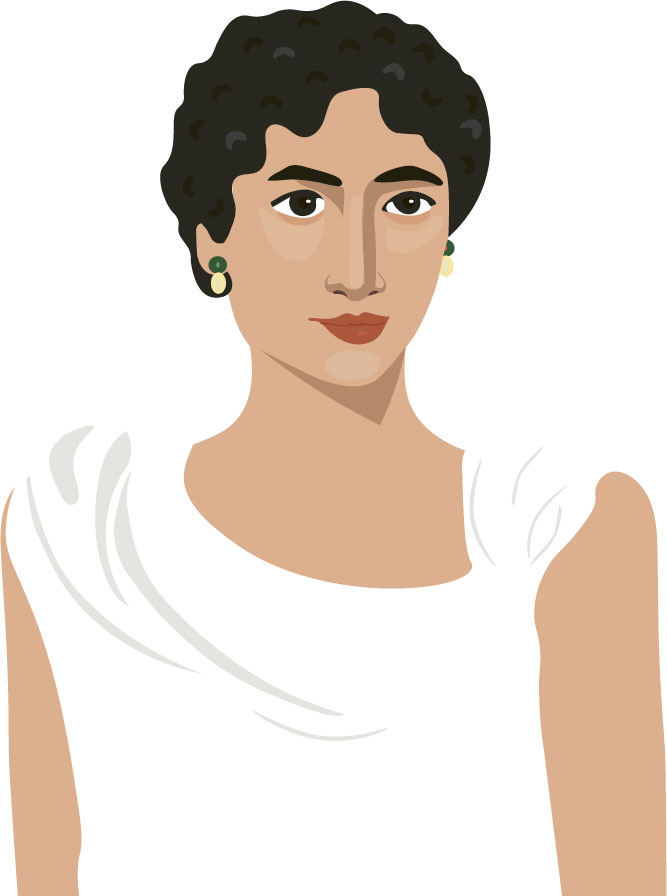
Hypatia
Eleanor of Aquitaine, Queen Consort of France and England, c. 1122–1204
Perhaps the most influential woman in medieval Europe, Eleanor of Aquitaine was an important patron of the arts as well as playing an active role in government. Eleanor’s fifteen-year marriage to Louis VII of France was annulled in 1152 and two-months later she married Henry of Anjou. In 1154 Henry became Henry II of England; Eleanor was instrumental in helping to manage her husband’s empire, travelling between England and France. In 1173 she sided with two of her sons in a plot against Henry and was imprisoned for her role in the attempted uprising. On his father’s death in 1189, Richard I ordered the release of his mother who once again became a central figure in politics, acting as Regent in 1190 during Richard’s crusade to the Holy Land.
St. Joan of Arc, French Heroine, c. 1412–31
A French peasant girl, Joan of Arc showed formidable courage when she persuaded the dauphin Charles (later Charles VII) to trust her to lead his troops against the English during the Hundred Years’ War. Joan believed herself to be under divine guidance, and won important victories for the French, most notably at Patay, and in securing the coronation of Charles. She was captured in 1430, tried for heresy and executed.
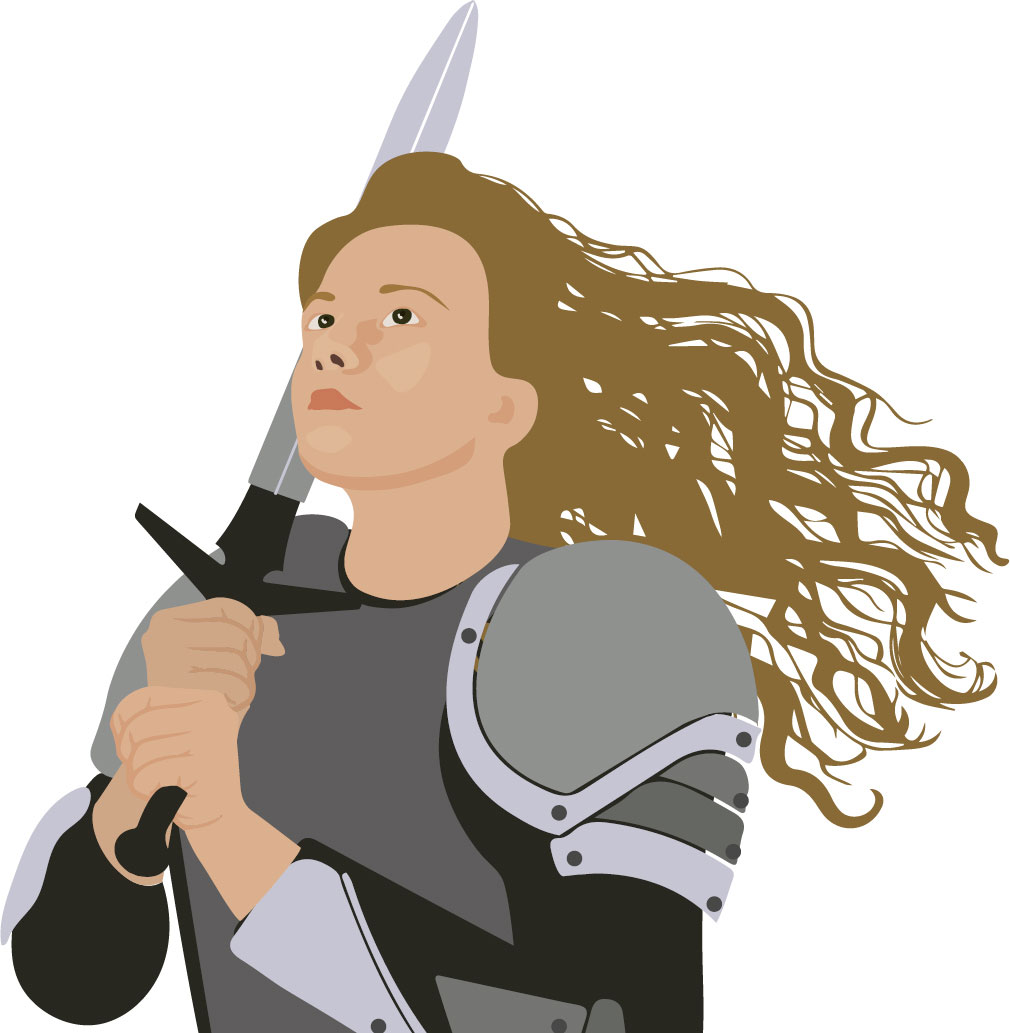
St. Joan of Arc
Olympe de Gouges, Writer and Social Reformer, 1748–93
A prolific social activist and writer, de Gouges campaigned on issues including divorce, maternity hospitals and the rights of unmarried mothers. In 1791 she published a pamphlet entitled ‘Déclaration des droits de la femme et de la citoyenne’ (‘Declaration of the Rights of Woman and of the [Female] Citizen’). A supporter of the Girondins during the French Revolution, she was executed following their fall in 1793.
Mary Wollstonecraft, Writer and Feminist, 1759–97
Now recognized as a trailblazer in the women’s rights movement, Wollstonecraft’s most important work was the 1792 A Vindication of the Rights of Woman. In this, she argued for the wholesale reform of the educational system to equip women for employment and independent living.
Qiu Jin, Feminist Poet and Revolutionary, 1875–1907
During the unstable final years of the Qing government, Qiu Jin was a leading figure in the new wave of feminists who aligned women’s rights with political revolution. Defying gender and class norms of the time, Qiu Jin unbound her feet, cross-dressed, and left her husband and children to travel to Japan and pursue an education. She established the Chinese Women’s Journal and wrote and spoke extensively on issues such as foot binding and arranged marriages. Executed by Qing troops in 1907, she is regarded as a revolutionary martyr by many in China.
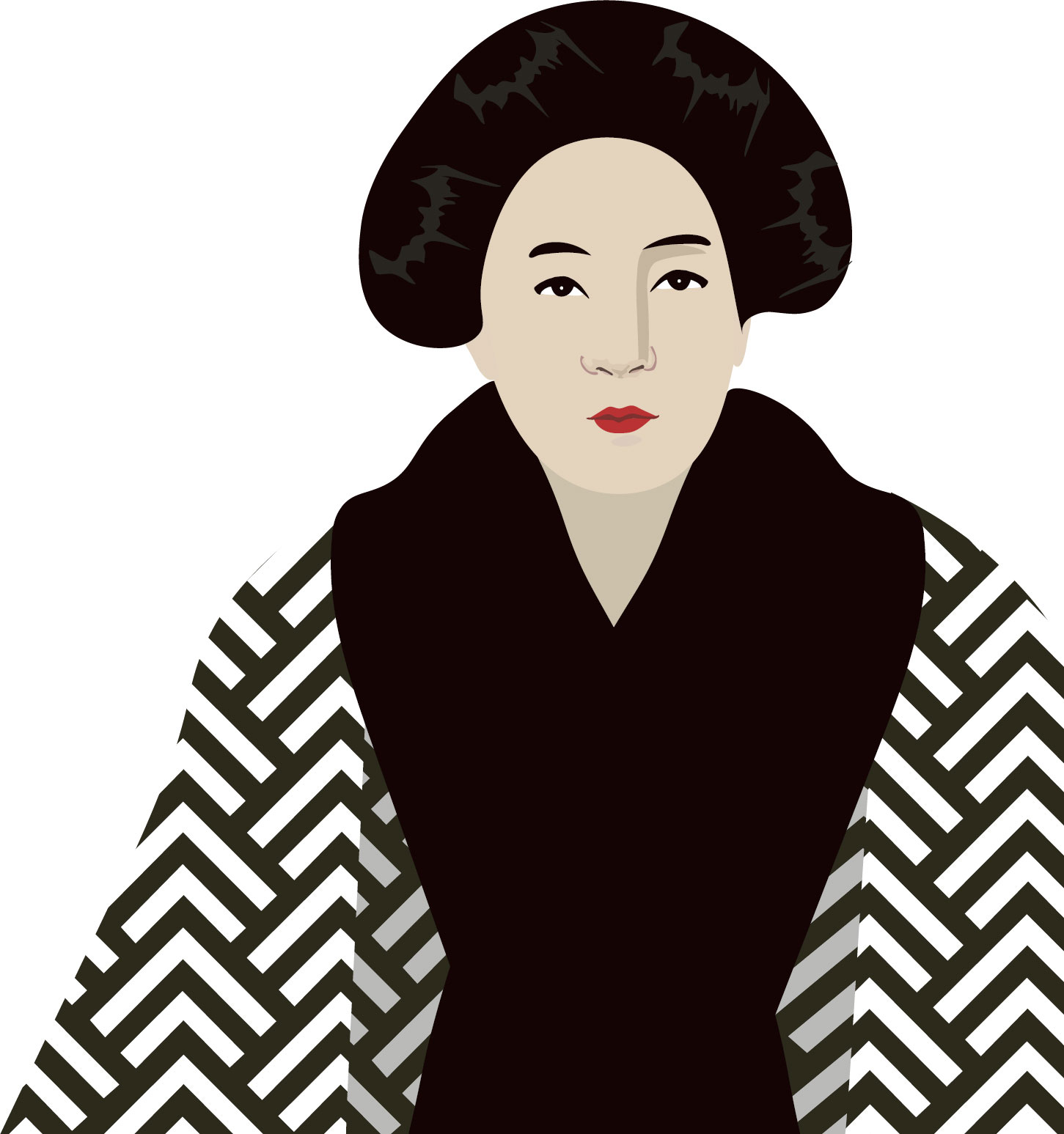
Qiu Jin
Sarojini Naidu, Political Activist, Feminist and Poet, 1879–1949
Inspired by Mahatma Gandhi’s non-cooperation movement, Naidu was a vocal campaigner for India’s Congress movement. In 1925 she became the first Indian female President of the National Congress, travelling in eastern Africa, South Africa and North America to further the cause and lecture. Following independence, she served as governor of the United Provinces (modern-day Uttar Pradesh) from 1947 until her death. Today, Naidu’s birthday is celebrated as Women’s Day throughout India.
Dolores Ibárruri, Spanish Political Leader, 1895–1989
Known as ‘La Pasionaria’ (‘The Passionflower’), Ibárruri was a vocal member of the Spanish Communist Party, jailed several times for her political activities. In a famous speech during the Spanish Civil War, she raised the rallying cry of ‘No parasán!’ – ‘They shall not pass’. On Franco’s victory, Ibárruri left Spain and travelled to Russia, where she remained active as the General Secretary of the Central Committee of the Communist Party of Spain. She returned to her home country in 1977.
Rachel Carson, Biologist, 1907–64
Carson wrote extensively on environmental pollution and marine biology. Her 1962 book, Silent Spring, became an international best seller and greatly increased awareness of environmental issues. Carson’s pioneering work led to the creation of the US Environmental Protection Agency, and she was posthumously awarded the Presidential Medal of Freedom.
Simone de Beauvoir, Writer and Philosopher, 1908–86
A member of the existentialist intellectuals in France, in 1949 de Beauvoir wrote Le Deuxième Sexe (The Second Sex). Recognized as a seminal feminist work, the book sought to answer the question: ‘what is woman?’
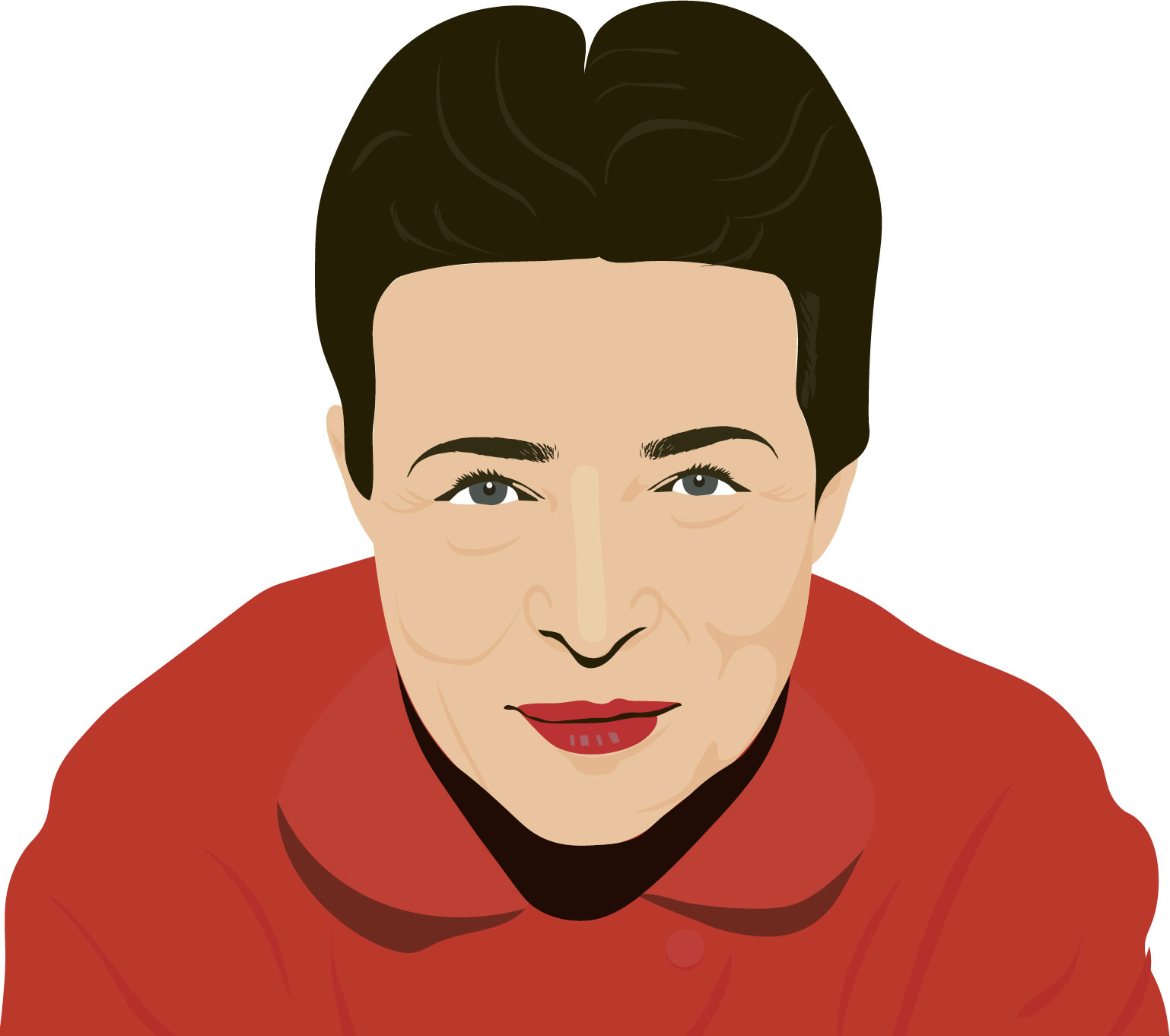
Simone de Beauvoir
Maya Angelou, Poet, Writer and Actress, 1928–2014
Maya Angelou’s career saw incredible success as a writer of autobiographies, poetry and screenplays. She won a National Book Award Nomination for her first autobiography, I Know Why the Caged Bird Sings (1969), became one of the first African-American women to have a screenplay produced as a feature film with Georgia, Georgia, and performed ‘On the Pulse of Morning’ at Bill Clinton’s inauguration as US President in 1993. Much-loved and respected, Angelou received the Presidential Medal of Freedom in 2010 from Barack Obama.
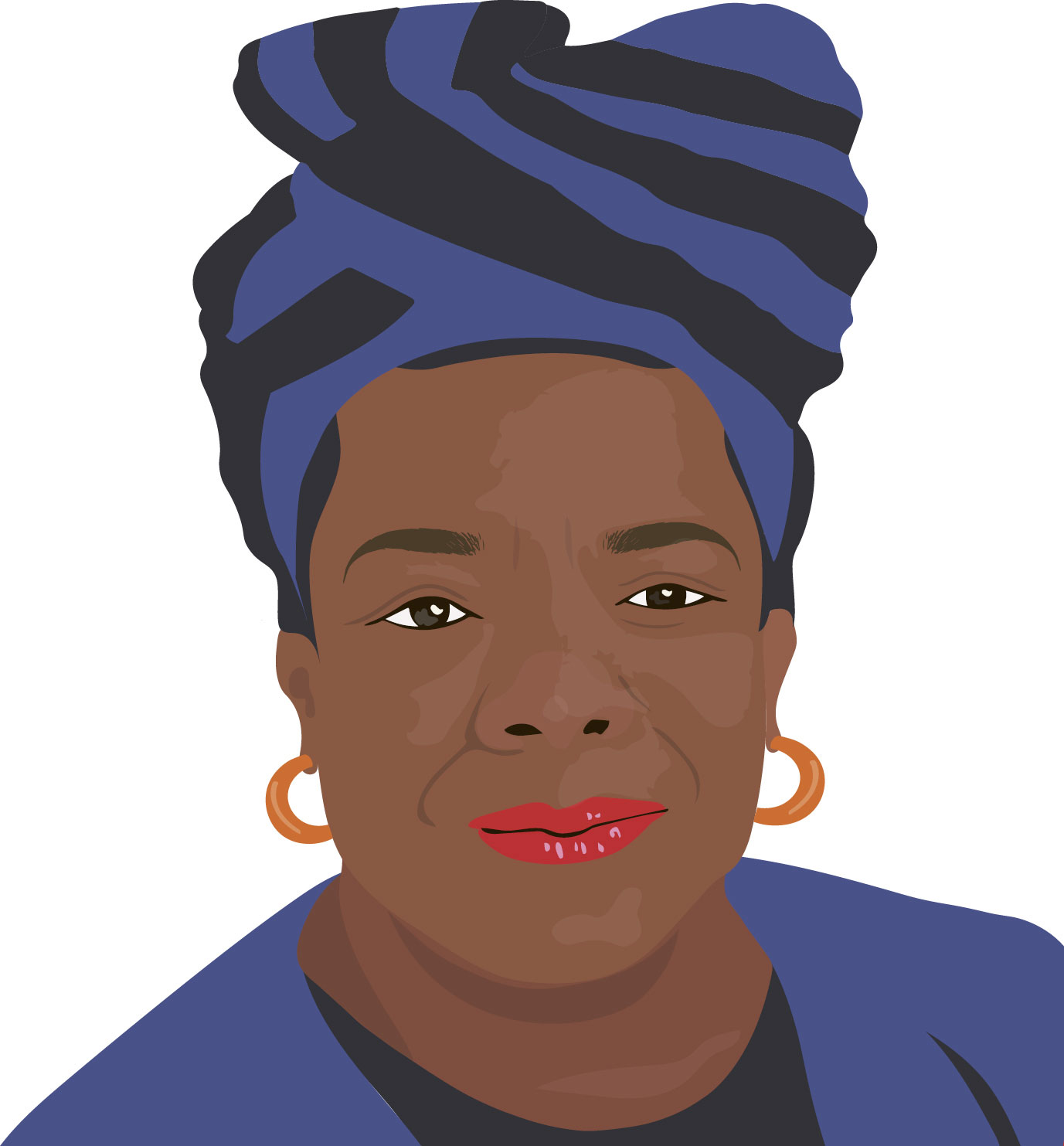
Maya Angelou
Betty Friedan, Author and Feminist, 1921–2006
Friedan was best known as the author of The Feminist Mystique, an incredibly influential work of feminist literature. Having interviewed many housewives, Friedan challenged the view that the designated role of wife and mother held the total fulfilment that society promoted. She also co-founded the National Organization for Women, campaigning to help women improve their lives in a variety of areas.
Billie Jean King, Tennis Player, b. 1943
Former World Number 1 tennis professional, Billie Jean King famously defeated Bobby Riggs, also a former World Number 1 player, in a 1973 match dubbed the ‘Battle of the Sexes’. Following a playing career in which she won 39 Grand Slam titles, King has become an outspoken advocate for social justice and equality.
Benazir Bhutto, Prime Minister of Pakistan, 1953–2007
The first female leader of a Muslim country, Benazir Bhutto served two terms as Prime Minister of Pakistan. In a tumultuous political period, Bhutto, as leader of the Pakistan People’s Party (PPP), found herself frequently under house arrest, lived in exile for a number of years and faced allegations of corruption while in government. In 1995, at the United Nations Conference on Women, Bhutto gave an eloquent address in which she demonstrated how the fundamental teachings of Islam protect and enshrine the rights of women.
Marie Colvin, Journalist, 1956–2012
War and foreign affairs correspondent Marie Colvin repeatedly put her life at risk to travel right to the heart of conflicts. Suffering the loss of one eye and later the loss of her life through her work, Colvin was always committed to bringing to light the true effects of war on the civilians affected by it. In 2010, Colvin spoke movingly about the motivation of journalists to report on conflicts – even when it meant putting themselves in danger – at a service to commemorate reporters and support staff who had lost their lives during conflict.
Chimamanda Ngozi Adichie, Author, b. 1977
Having found great success in writing such novels as Half of a Yellow Sun (2006) and Americanah (2013), which were influenced by her Nigerian roots, Adichie also famously gave the 2012 TEDx Talk ‘We Should All Be Feminists’, which she later adapted into an essay. The speech – the author’s second TED Talk – captured the attention of people around the world, with the slogan ‘We Should All Be Feminists’ emblazoned on t-shirts by fashion house Dior and quotes featured in Beyoncé’s 2013 song ‘***Flawless’.
Emma González, b. 1999
In 2018 the world was shocked by the shooting at Stoneman Douglas High School in Parkland, Florida. In the wake of the tragedy, student survivors rose up eloquently to advocate gun control legislation in the United States. Eighteen-year-old González emerged as a leading figure in the movement, co-founding the gun control group Never Again MSD and becoming an outspoken activist for the cause. At the March for Our Lives (which she helped to organize), González gave a moving tribute to her fellow students who had lost their lives.
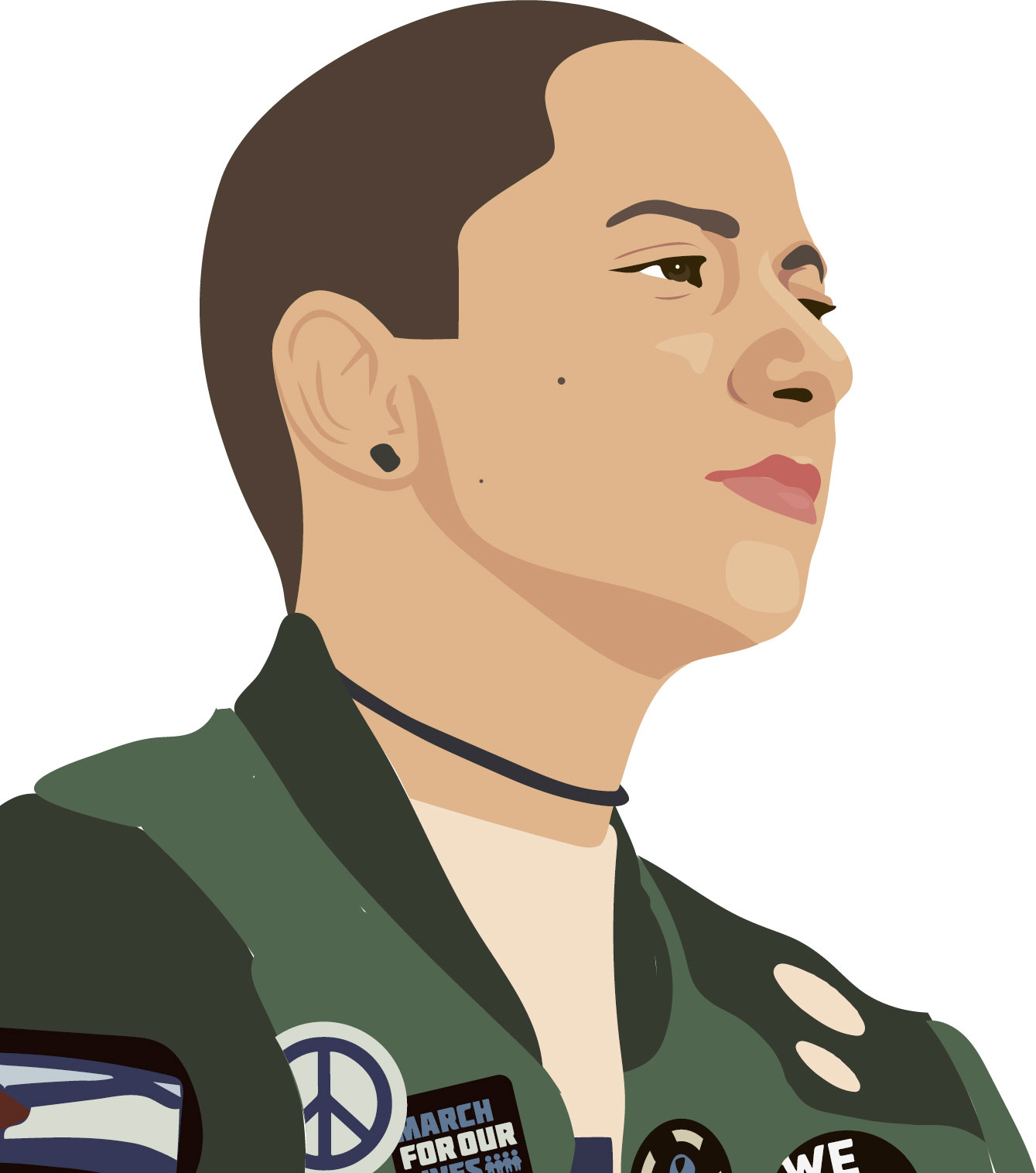
Emma González